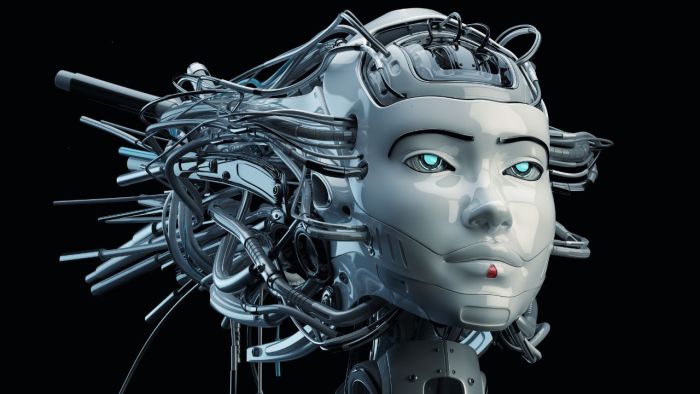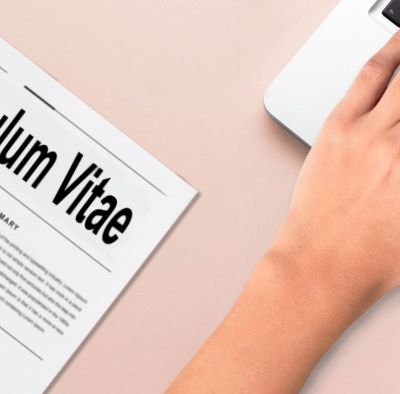UP DESH AI
Sales Jobs
Frontline Jobs
Finance Jobs
Healthcare Jobs
HR Jobs
Engineering Jobs
Operations/Quality Jobs
Creative Jobs
Logistics Jobs
Media Jobs
Construction Jobs
Retail/E-commerce Jobs
Telecom Jobs
BPO/Call Center Jobs
Fashion Jobs
Manufacturing Jobs
Real Estate Jobs
Event Management Jobs
Marketing Jobs
Jobs in Maharashtra
Jobs in Tamil Nadu
Jobs in Jharkhand
Jobs in Union Territory
Tech Support Jobs
I.T Infrastructure Jobs
IT Consulting Jobs
Frontend Development Jobs
Backend Development Jobs
Full Stack Development Jobs
UI/UX Design Jobs
Data Science and AI Jobs
Cloud Computing Jobs
Cybersecurity Jobs
Embedded and IoT Jobs
Testing and QA Jobs
IT Operations Jobs
Mobile App Development Jobs
Robotics and Automation Jobs
Database Jobs
Blockchain Development Jobs
Virtual Reality (VR) and Augmented Reality (AR) Jobs
Top Management Jobs
Marketing Jobs
Product Jobs
Finance Jobs
Technology Jobs
Human Resources Jobs
Browse Jobs
Debate: Will AI Take Over Humans?

The rapid development of artificial intelligence (AI) has sparked significant debate about its future role in society. Some fear that AI will surpass human intelligence and take over various aspects of life, while others argue that AI will remain a tool that augments rather than replaces human capabilities. This debate examines both sides of the argument to better understand the potential trajectory of AI and its implications for humanity.
1. Advancements in AI Capabilities
AI technology is advancing at an unprecedented rate, with systems increasingly capable of performing tasks that were once considered uniquely human. AI can now analyze vast amounts of data, make complex decisions, and even generate creative outputs. As these systems become more sophisticated, they could potentially surpass human intelligence in various domains, leading to a future where AI plays a dominant role in decision-making and problem-solving.
2. Automation and Job Displacement
AI and automation are already displacing jobs across multiple sectors. For example, autonomous vehicles threaten to replace drivers, and AI-powered algorithms are handling tasks in finance, customer service, and healthcare that were previously performed by humans. As AI technology continues to evolve, it could lead to widespread job displacement, reducing the role of humans in the workforce and potentially leading to an economic shift where AI takes over more functions traditionally held by people.
3. AI in Strategic Decision-Making
AI systems are increasingly being used in strategic decision-making roles. In areas such as financial trading, military strategy, and even criminal justice, AI algorithms are making complex decisions that can significantly impact lives and economies. As AI becomes more advanced, it could take on even more critical decision-making roles, potentially leading to scenarios where human judgment is secondary to AI-driven analysis and conclusions.
4. Rapid Scaling and Efficiency
AI can operate at a scale and speed that humans cannot match. For instance, AI can process and analyze vast amounts of data in real-time, making it highly efficient for tasks like pattern recognition, risk assessment, and predictive analytics. This efficiency could lead to AI systems taking over functions that require rapid processing of information, potentially surpassing human capabilities in speed and accuracy.
5. Self-Improving AI Systems
The concept of self-improving AI, where systems can enhance their own algorithms and performance over time, poses a scenario where AI might continually advance beyond human oversight. If AI systems are designed to learn and evolve autonomously, they could reach a point where their capabilities far exceed those of their human creators, raising concerns about control and influence.
1. Human Creativity and Emotional Intelligence
AI, despite its advancements, lacks human qualities such as creativity, emotional intelligence, and moral reasoning. AI systems operate based on algorithms and data and do not possess the ability to understand or interpret human emotions, values, and cultural contexts. Tasks that require empathy, ethical judgment, and creative problem-solving are areas where humans still have a distinct advantage over AI.
2. Ethical and Regulatory Oversight
The development and deployment of AI are subject to ethical considerations and regulatory oversight. Governments, organizations, and researchers are actively working to ensure that AI is developed and used responsibly. Ethical frameworks and regulations are in place to guide AI development, preventing potential misuse and ensuring that AI serves humanity’s best interests. This oversight helps mitigate the risk of AI surpassing human control.
3. AI as a Complementary Tool
Rather than replacing humans, AI is more likely to act as a complementary tool that enhances human capabilities. AI systems can handle repetitive, data-intensive tasks, allowing humans to focus on more strategic, creative, and complex aspects of work. The integration of AI into various fields is intended to augment human efforts, not completely replace them.
4. Human Oversight and Control
AI systems are designed, operated, and controlled by humans. Human oversight remains a crucial element in the deployment and functioning of AI technologies. Decisions made by AI are subject to human review, and humans are responsible for setting the goals, parameters, and ethical considerations for AI systems. This ensures that AI operates within the boundaries established by human values and objectives.
5. Collaboration Between Humans and AI
The future of AI is likely to involve a collaborative relationship between humans and AI systems. By working together, humans and AI can achieve outcomes that neither could accomplish alone. AI can assist with complex problem-solving and data analysis, while humans provide context, creativity, and ethical judgment. This collaborative approach leverages the strengths of both AI and human capabilities.
The debate over whether AI will take over humans highlights important considerations about the future role of technology in society. While AI is advancing rapidly and has the potential to significantly impact various aspects of life, it is unlikely to fully replace humans in all areas. Instead, the future is likely to involve a symbiotic relationship where AI augments human abilities and enhances productivity.
To navigate this future effectively, it is essential to continue focusing on ethical development, responsible use, and inclusive growth. By addressing potential risks and leveraging the strengths of both AI and human capabilities, we can work towards a future where technology benefits all of humanity.
Give your Rating
Categories
Most Viewed
-
 How Social Media Shapes Your Subconscious
Dec 2 '2024, 2:22 PM
How Social Media Shapes Your Subconscious
Dec 2 '2024, 2:22 PM
-
 Why Did I Fail My Interview? (And What to Do Next)
Sep 13 '2024, 1:04 AM
Why Did I Fail My Interview? (And What to Do Next)
Sep 13 '2024, 1:04 AM
-
 The Influence of Social Media on the Indian Job Market: Opportunities and...
Sep 12 '2024, 11:52 PM
The Influence of Social Media on the Indian Job Market: Opportunities and...
Sep 12 '2024, 11:52 PM
-
 How to Create a Killer Curriculum Vitae: A Step-by-Step Guide
Sep 13 '2024, 12:44 AM
How to Create a Killer Curriculum Vitae: A Step-by-Step Guide
Sep 13 '2024, 12:44 AM
-
 India's Tech Industry: Boon or Bane for the Job Market?
Sep 12 '2024, 11:22 PM
India's Tech Industry: Boon or Bane for the Job Market?
Sep 12 '2024, 11:22 PM